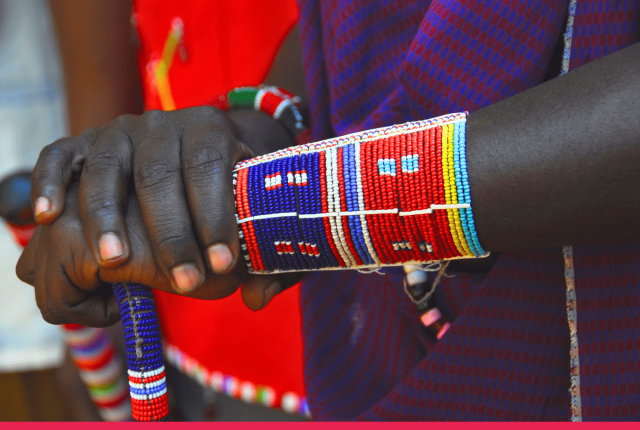
The Future of Africa: How Diaspora Investment Can Shape the Continent’s Trajectory
Introduction
Africa stands on the precipice of a transformative era, with its diaspora playing a pivotal role in shaping its future. Beyond financial remittances, African professionals abroad—educators, engineers, scientists, economists, and artists—can contribute significantly to the continent’s development. Their participation in knowledge transfer, skills training, infrastructure development, and strategic planning is invaluable. Greater diaspora engagement fosters cultural exchange, strengthens international ties, and catalyzes economic growth, ultimately making Africa better for all.
The Power of Diaspora Engagement Beyond Financial Contributions
1. Knowledge and Skills Transfer
Investment from the diaspora is not limited to financial resources. Highly skilled professionals in various fields can contribute expertise that enhances local industries. For instance:
- Education: African academics abroad can collaborate with local universities to establish research partnerships, improve curricula, and mentor students.
- Engineering & Technology: Diaspora engineers and IT specialists can introduce cutting-edge technologies, support infrastructure projects, and facilitate industrial innovation.
- Healthcare: African doctors and medical researchers overseas can help improve healthcare systems through knowledge-sharing programs and medical missions.
2. Capacity Building and Workforce Development
Africa’s workforce stands to benefit immensely from diaspora-led initiatives that provide training and mentorship. Structured knowledge-sharing programs ensure long-term sustainability by empowering local professionals with industry best practices.
Examples include:
- Technical training programs for young engineers and scientists
- Business mentorship for local entrepreneurs and startups
- Exchange programs connecting African professionals with the global workforce
3. Cultural Exchange and International Connectivity
Stronger ties between the diaspora and local communities encourage cross-cultural understanding and global networking. This leads to:
- Increased appreciation of African heritage and traditions abroad
- Broader market access for African cultural products (e.g., music, film, literature, fashion)
- Enhanced tourism and global interest in African innovations
The Economic Impact of Diaspora Investment
1. Infrastructure and Regional Stability
Infrastructure remains a critical area where diaspora investment can make a difference. Many large-scale projects require both financial backing and technical expertise. The diaspora can support:
- Transport and Logistics: Investing in modern roads, railways, and ports to enhance trade and connectivity.
- Energy Sector: Expanding renewable energy projects to improve electricity access and sustainability.
- Digital Infrastructure: Strengthening internet connectivity to facilitate e-commerce, fintech, and remote work opportunities.
2. Strategic Investment in Emerging Industries
Diaspora investors are uniquely positioned to identify high-growth sectors and invest in Africa’s long-term development. Promising areas include:
- Agribusiness: Supporting sustainable farming, food processing, and agricultural exports.
- Fintech and Digital Economy: Enhancing financial inclusion and innovation in digital payments.
- Creative Industries: Expanding Africa’s presence in global arts, film, and entertainment.
3. Entrepreneurship and SME Growth
Diaspora networks can fuel local entrepreneurship by:
- Providing seed funding for startups
- Facilitating access to international markets
- Offering mentorship and business development support
With the right policies and incentives, the diaspora can help create jobs, reduce economic disparities, and drive sustainable development.
Case Studies: Success Stories of Diaspora Engagement
1. The Role of African Entrepreneurs Abroad
African entrepreneurs in the diaspora have successfully launched businesses that benefit both their host countries and Africa. Examples include:
- Tech hubs in Kenya and Nigeria attracting global investors
- African-led healthcare initiatives improving maternal care in rural areas
- Fashion designers taking African aesthetics to global runways
2. Diaspora-Driven Development Projects
Several countries have implemented successful diaspora-led projects, such as:
- Ethiopia’s Grand Renaissance Dam, funded partly by the Ethiopian diaspora
- Ghana’s “Year of Return” campaign, encouraging investment from African Americans
- Rwanda’s ICT sector growth, driven by Rwandan professionals abroad
These examples illustrate the immense potential of diaspora participation in Africa’s development.
Overcoming Challenges to Diaspora Investment
While opportunities abound, challenges remain. Addressing these issues can unlock even greater diaspora involvement.
1. Strengthening Policy and Regulatory Frameworks
Governments must create conducive environments for diaspora investment by:
- Simplifying business registration processes
- Establishing clear land ownership laws
- Enhancing transparency in public-private partnerships
2. Encouraging Public-Private Partnerships (PPPs)
Collaboration between governments, the private sector, and the diaspora can accelerate development. Key strategies include:
- Incentives for diaspora investors (e.g., tax breaks, access to local funding opportunities)
- Joint ventures between diaspora-owned businesses and local firms
- Diaspora bonds to finance large-scale infrastructure projects
3. Leveraging Technology for Engagement
Digital platforms can enhance diaspora connectivity by:
- Creating online marketplaces for diaspora investors and African entrepreneurs
- Establishing virtual mentorship programs
- Using blockchain for secure remittance channels and investment tracking
Conclusion: Harnessing the Diaspora for Africa’s Future
Africa’s diaspora holds the key to the continent’s long-term success. Beyond financial contributions, their knowledge, skills, and global networks are invaluable in shaping Africa’s economic and social trajectory. Governments, businesses, and civil society must actively engage the diaspora through inclusive policies, investment opportunities, and collaborative development initiatives.
Call to Action:
If you are part of the African diaspora or an advocate for Africa’s development, get involved! Invest, mentor, and collaborate to drive Africa forward. Share this article with your network and help spread awareness of the diaspora’s vital role in shaping Africa’s future.



Leave a Reply